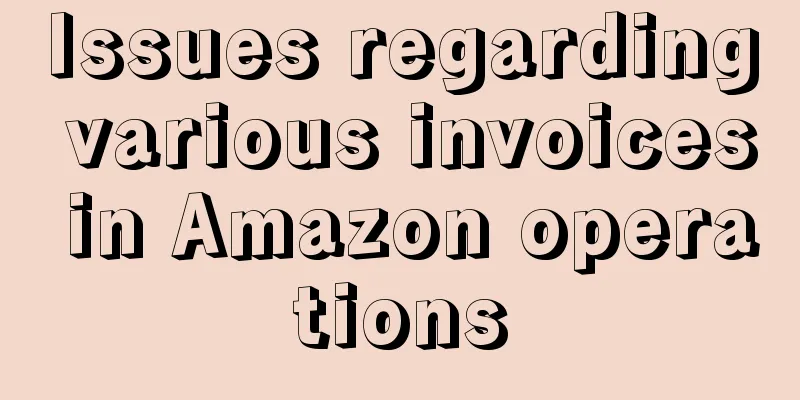What is a VISA credit card? VISA credit card review

|
VISA is a credit card brand operated and managed by Visa International, a company based in San Francisco, California, USA. VISA cards were first issued in 1976, and its predecessor was Bank Americard, which was issued by Bank of America. About VISA As a global payment technology company, Visa is committed to helping consumers, businesses, banks and governments use digital currencies to improve people's lives and economic conditions around the world. Visa actively promotes inclusive finance and lends a hand in times of crisis - Visa wants to use its products, expertise and philanthropy to bring positive changes to the world. Visa serves consumers, businesses, banks and governments in more than 200 countries and territories around the world. VISA card types credit card Visa provides its financial institution clients with a rich credit card product platform that can meet the various payment needs of new credit card customers, high-end consumers, and large institutions. Visa's credit card platform also provides value-added services such as personalized points reward system, emergency replacement cards, travel assistance and car rental insurance, which can help card issuers improve customer loyalty and usage rate. Debit Card Visa provides a wide range of consumer debit card products for different consumer segments in different regions and with different spending levels. Visa debit cards allow consumers to use funds in their own accounts electronically, which is more convenient, safer and more flexible than paying with cash or checks. Visa's debit cards are divided into four major brands: Visa, Visa ElecTROn, Interlink and PLUS. Prepaid Cards Visa also offers a wide range of prepaid card products, allowing financial institutions to offer consumers rechargeable prepaid card products. For consumers who do not yet have bank accounts, Visa prepaid card solutions are a safer and more convenient option than cash and checks. Governments and businesses use Visa prepaid card products to pay for health insurance and Medicaid, unemployment benefits, employee wages and other benefits. Visa also offers prepaid gift cards that can be used at any merchant that accepts Visa debit products. Prepaid products better meet the needs of global travelers and provide them with the convenience and security of electronic payments without the hassles of cash and checks. Commercial payment solutions Visa provides a complete set of commercial payment solutions for small, medium and large enterprises and government agencies. Visa's commercial payment platform includes: 1. For small businesses: Visa Business Credit Card, Visa Business Debit Card and Visa Series Business Credit Card; 2. For large and medium-sized enterprises and government agencies - Visa corporate cards, Visa purchasing cards, Visa business cards, Visa conference cards, Visa fleet cards, Visa distribution cards, and B2B and supply chain management products and services. In addition, there is a set of software tools called VisaIntellilink Spend Management, which can better help enterprises manage their expenses and related information. In addition to these platforms, Visa can also provide specially customized solutions in different markets to meet the specific requirements of businesses and government agencies of all sizes. 1. Visa Card Visa is the most popular card in the world, providing convenient, safe and reliable payment services. Whether it is daily shopping, hotel booking, or online bookstore shopping, Visa cards are most recognized and accepted by merchants and are equally popular online and in the real world. 2. Visa Gold Card Whether you are a new customer with a good credit record or an old customer who has always supported Visa cards, please upgrade to Visa Gold Card immediately and enjoy the gold standard of superior service. As long as you hold a Visa Gold Card, you can enjoy a credit line of more than US$5,000, a revolving credit line, emergency card replacement services and travel cash out services. In addition, Visa Gold Cardholders can enjoy travel accident insurance, medical and legal service referrals and assistance, and Visa Global Emergency Service Center 24 hours a day toll-free telephone support. 3. Visa Platinum Card Visa Platinum Card offers a very high credit limit, tailor-made travel hospitality services and entertainment programs, $500,000 travel accident insurance, and a series of attractive exclusive offers. 4. Visa Infinite Card The Visa Infinite card transcends ordinary payment boundaries and provides hard-to-find credit limits, unimaginable convenience, tailor-made offers, and unparalleled service. Only a select few can enjoy the unique status of the Visa Infinite card. 5. Visa Debit Card Visa debit cards can be used to pay bills directly from bank accounts, and payment records will be detailed in the bank statement, making financial management easier and more convenient. Whether you are doing daily shopping, dining at restaurants, refueling your car, or shopping while traveling, you can use Visa debit cards to pay, making everything easier. You can also use Visa debit cards to withdraw cash at ATMs around the world. Visa debit cards make the shopping process faster, more convenient, and safer, and are accepted by tens of millions of merchants around the world. 6. VisaWave Card Simply hold your VisaWave card near the reader to complete the payment, making the process faster, simpler and more secure. 7. Visa Mobile VisaMobile integrates all the benefits offered by Visa cards into the mobile phone, allowing you to purchase or download coupons, games, music, movie tickets, etc. over the phone. 8. Visa Prepaid Card Visa Prepaid Cards provide an easy, convenient and secure way to pay anytime, anywhere. Visa Travel Money is a travel prepaid card that allows you to withdraw local currency for travel expenses at over 1.8 million ATMs in more than 200 countries and regions around the world 24 hours a day. VISA Innovations Visa’s latest innovations include: Mobile Payments and Services – As the number of mobile devices continues to grow, Visa is working to expand the adoption of its payment products and services through mobile devices. Visa Money Transfer - Visa's global transaction processing network can support a range of emerging new services, making it possible to transfer funds directly into a Visa account. The global money transfer service is a person-to-person payment platform that allows individuals to conduct secure and fast electronic remittance services through Visa's payment network. E-commerce - Consumers choose to use Visa credit, debit or prepaid products to conduct online transactions rather than other payment methods. As the world's most popular and leading electronic payment company for commercial payment, Visa has gained the trust of consumers and helped them purchase products and services online. Visa has gained the praise and trust of consumers. Chip Technology - Visa actively supports the adoption and promotion of EMV chip technology, including EMV contact chip technology and Visa payWave contactless technology. Based on chip technology, Visa electronic payment can be expanded to more payment environments, such as public transportation, vending machines and parking lots. Payment Processing VisaNet, Visa's core network, is one of the world's largest transaction and information processing networks, helping financial institutions, consumers, merchants, businesses and government agencies to deliver value and information. For more than 30 years, VisaNet has provided an important platform for Visa's innovation and services. Today, through VisaNet's centralized and integrated architecture, Visa provides customers with secure and reliable mass transaction processing (authorization, clearing and settlement) and value-added services. The main features of VisaNet include: Scale - More than 101 billion authorization, clearing and settlement transactions were processed through VisaNet in 2009. Rigorous testing results show that VisaNet can process more than 20,000 transaction messages per second. Reliability - VisaNet has four data processing centers located in three continents around the world. These processing centers are fully synchronized and use a consistent authorization platform, which enables Visa to transfer transaction processing volume from one data center to another at any time when necessary. At the same time, each of Visa's new-generation data centers is equipped with multiple authorization engines, which is equivalent to a "data center in a data center." These advanced technologies help ensure the availability of the VisaNet system and sufficient processing power to meet the growing demand for electronic payments. Security - Because of VisaNet's centralized architecture, Visa can "see" every transaction processed by VisaNet, which enables Visa to use Visa's "Advanced Authorization" service to perform real-time risk scoring on each transaction, making it possible to take the lead and issue early warnings and stop fraudulent transactions before they occur. Value-added services - Visa also provides a variety of value-added services through a global centralized processing platform, such as enhanced risk management, dispute processing, cardholder loyalty applications and other information services. For example, the Visa Incentives Network (VIN) uses the centralized processing capabilities of VisaNet to provide personalized points rewards based on the needs and preferences of American cardholders. Security protection Visa is well aware that it must protect and control every link in the payment system and work closely with other parties to ensure people's trust in every Visa payment. To achieve this goal, Visa has implemented multi-level security measures. These different levels of security help to detect and stop fraud early, or minimize the impact and scope of fraud when it occurs. Visa's security strategy focuses on the following aspects: · Ensure the security of the payment environment to protect transaction data; · Effectively monitor, identify and prevent fraud through technology and best practices; Control the impact of fraud and help card issuers and acquirers recover or minimize losses caused by fraud; Maintaining trust in Visa payments through merchant and consumer education; By promoting industry-wide participation and the establishment of a responsibility mechanism, we will create an industry environment for mutual cooperation in payment security. Procedures 1. VISA and MasterCard are not banks, but banking organizations, just like China's "UnionPay"; VISA card refers to one of the international credit cards issued by any bank, and the other is the one with the MASTER logo; VISA is like China's UnionPay. VISA International is the world's largest international credit card organization. It is a non-profit international organization participated by banks all over the world. Its members are composed of banks and other financial institutions, and it has established a global payment and financial service network. There are two major international organizations: VISA International and MasterCard International; If the card has a VISA logo, it means that the credit card has joined the VISA organization and can be used in the banking system under its network; In 1959, Bank of America issued the first bank credit card. In 1965, the American Commercial Bank, which had developed a relatively large scale of credit cards, began to expand its national business. The following year, it authorized its trademark to other banks and issued a blue, white and gold three-color pattern Bank Americard. In the same year, fourteen eastern banks established the "Interbank Card Association" in Buffalo, New York, and after its establishment, Bank Americard was the main competitor. In order to expand its business, the American Commercial Bank established National Bank Americard Incorporated (NBI). The banks that originally used the authorized trademark became non-shareholding members of NBI. The American Commercial Bank also expanded its business outside the United States. However, Bank Americard, which has a strong American commercial bank color, is not favored by foreign banks. In 1966, Bank of America Service Corp. (BSC) was established. In 1970, BSC was renamed National Bank Americard INC (NBI) to provide bank credit card services throughout the United States. In 1977, NBI was reorganized into VISA International, namely VISA International Group. VISA International is a credit card organization composed of international bank members. It has no shares and is a non-profit organization. Its headquarters is located in San Francisco, California, USA. VISA helps members develop various VISA payment tools (also known as credit cards) and traveler's check businesses; provides members with various VISA products and services; helps members use VISA products and services to make profits; reduces members' repeated investment on the Internet, and provides members, consumers and special merchants with automatic "cashless" payment tools and systems! Visa is not just a synonym for payment cards or credit products. Products and services with Visa as the brand represent the safest, most convenient and most reliable payment method, allowing consumers to conduct transactions at any time, any place, and in any way. Visa is committed to cooperating with the People's Bank of China and Chinese banks to ensure that China's payment industry will strongly support the sustained and rapid development of the economy in the future. It is the kind of card that people often swipe in shopping malls, commonly known as bank cards/credit cards/debit cards. 2. VISA does not issue cards itself. When you apply for a credit card in China, you can choose between VISA and MasterCard. Just choose VISA. As for the concept of "international", in fact, all credit cards are globally accepted. The only difference is whether settlement in foreign currency is allowed. Most banks offer dual-currency cards in US dollars and RMB. If other currencies are needed, the only option left is Bank of China. If everything goes well, the application will take about 14 days to review, and if it’s approved it will take about 3 days to ship the credit card, which means that you can usually get it within 20 days. If there is a VISA payment channel logo on the website, it proves that it can indeed support VISA payments. ICBC (Industrial and Commercial Bank of China) VISA international cards are supported. ICBC also supports VISA verification services. You can log in to ICBC online banking or go to the counter to apply for VISA verification services and reserve payment verification information. If the website also supports VISA verification, you need to provide your reserved verification information when paying. If the website does not support VISA verification, you only need to provide the card number, validity period, and your pinyin name (the same as you filled in when you applied for the card) when paying. ICBC VISA card RMB account and US dollar account are separate. You can pay directly on the website. After overdraft, you can apply for foreign exchange purchase repayment at ICBC. VISA card is an international card (standard credit card or debit card) product of ICBC, which can be used worldwide and has interest-free overdraft function. When applying, you need to provide proof of income, proof of employment and other relevant documents. China Release UnionPay Visa Dispute In June 2010, Visa sent a letter to its member banks around the world, requiring that starting from August 1, 2010, all dual-currency credit cards with the Visa logo accepted overseas must not use China UnionPay's clearing channel, otherwise VISA will impose heavy penalties on the acquiring banks. On September 15, 2010, the United States claimed that the People's Bank of China had issued a number of restrictive measures since 2001, which had led to the monopoly of China UnionPay in RMB payment card transactions, discriminated against foreign suppliers, and violated China's commitment to open its financial services market. It then resorted to the WTO dispute settlement mechanism and requested consultations from China. On February 11, 2011, the United States requested the establishment of an expert group. On July 4, 2011, the panel designated by WTO Director-General Lamy officially began to hear the case. During the panel hearing, which lasted more than a year, China fully explained to the panel its position on the scope of its commitments on financial services, and introduced in detail China's bank card system, its historical evolution, and measures related to the interoperability of bank cards. On July 17, 2012, the World Trade Organization (WTO) dispute settlement body officially released a panel report, rejecting the U.S. accusation that China UnionPay has a monopoly, but supporting the U.S. claim that China should open up its electronic payment service market. On August 31, 2012, the WTO issued a press release stating that: "The WTO Dispute Settlement System (DSB) adopted the panel report on the case of 'China - Some Measures Affecting Electronic Payment Services'. China did not respond or appeal to the report." According to the relevant rules of the WTO, if one party gives up the appeal, it means accepting the ruling, which also means that China will be obliged to gradually open up the electronic payment service market to the outside world, and other card organizations besides UnionPay will be allowed to issue RMB payment cards in China. As the market is gradually liberalized, cardholders and merchants will have one more choice. Before this, cards with VISA or Mastercard logos alone could not be accepted at POS machines in China. As of September 3, 2012, the Ministry of Commerce of China's public response to the appeal was: The expert group report rejected some of the US claims and supported China's view of orderly opening up the payment services market, which China welcomes. On September 4, 2012, a relevant person in charge of China UnionPay told the Xin Kuai Bao reporter that they would comply with the decision of the Ministry of Commerce. Impact Analysis UnionPay's existing market share is difficult to shake The two-year-long lawsuit is a good thing. It has objectively promoted UnionPay's aggressive progress in recent years. The advantages of foreign card organizations entering China have been greatly weakened. However, it is difficult to predict whether competition will eventually reduce transaction settlement fees. From the perspective of payment fees for merchants and users, the fees charged by international card organizations in China are not very low, especially from the perspective of Internet charges, the fees charged by foreign card organizations are much higher than those in China. Some bank personnel said that if the market is open to competition, UnionPay may increase the inter-bank transfer fees of banks or set up some new charging items. UnionPay's charges to commercial banks are relatively low. Lin Caiyi, chief economist of Guotai Junan Securities and former chief researcher of UnionPay, believes that the electronic payment market is a fast-growing market, so market liberalization will not lead to the shrinkage of any institution's business. UnionPay's existing market share is difficult to shake, but how the share of the future incremental market is divided depends on the efficiency and market strategy of each card organization. Signed a strategic cooperation agreement with the Public Education Service Center of China Banking Regulatory Commission On the 4th, Visa, a world-renowned payment technology company, announced in Beijing that it has signed a strategic cooperation memorandum with the Public Education Service Center of the China Banking Regulatory Commission and reached a strategic partnership. The two parties will cooperate in financial education projects to promote the innovation and development of popular financial education. It is reported that the strategic cooperation between the two parties will last for three years. During the cooperation period, Visa will assist the Public Education Service Center of the CBRC to expand its service functions and further enrich the display content, making it an important financial education platform. In addition, the two parties will organize various financial education popularization activities such as financial knowledge lectures and competitions, financial education carnivals, etc., focusing on imparting basic personal financial management knowledge to young people and migrant workers. Honor Ranking On June 8, 2016, the "BrandZ Top 100 Most Valuable Global Brands 2016" was released, with Visa ranking 6th. In June 2017, the "BrandZ Top 100 Most Valuable Global Brands 2017" was released, and Visa ranked 7th with a brand value of US$110.999 billion. In December 2018, VISA was shortlisted for the 2018 World's Top 500 Brands, ranking 84th. In October 2019, Interbrand ranked it 55th in the world’s top 100 brands list. On October 23, 2019, the 2019 Fortune Future 50 list was announced, with Visa ranking 43rd. On November 16, 2019, Hurun Research Institute released the "2019 Hurun Global Unicorn Active Investment Institutions Top 100 List", and Visa was on the list. On January 22, 2020, it ranked 36th on the 2020 Fortune World's Most Admired Companies list. In January 2020, the 2020 list of the world's 500 most valuable brands was released, with Visa ranking 56th. On May 13, 2020, Visa ranked 141st on the 2020 Forbes Global 2000 list. On May 18, 2020, Visa ranked 137th on the 2020 Fortune 500 list. On June 30, 2020, Visa ranked 5th in the "BrandZ Top 100 Most Valuable Global Brands 2020" list. On July 28, 2020, Visa ranked 18th in Forbes' 2020 Top 100 Global Brands. Management Structure Joseph W. Saunders — Chairman and Chief Executive Officer Elizabeth Buse— Group President, International Business Jack Carsky—General Manager, Global Investor Relations Mike Dreyer—Chief Information Officer Eduardo Eraña—President, Latin America and the Caribbean Joshua R. Floum—General Counsel Oliver Jenkyn—General Manager, Global Corporate Strategy and Development Rick Leweke—Global Human Resources General Manager Antonio J. Lucio—Chief Marketing Officer Thomas A. M'Guinness—General Manager, Global Corporate Legal Affairs James McCarthy - Global Product Manager Doug Michelman—General Manager, Global Corporate Affairs John M. Partridge—President Darren Parslow---General Manager, Global Data Processing Byron H. Pollitt—Chief Financial Officer Ellen Richey—Chief Enterprise Risk Officer William M. Sheedy—Group President, Americas Una Somerville— General Manager, Global Client Services |
<<: What is Dubuy? Dubuy Review
>>: What is AMZ Foreign Trade Wizard? AMZ Foreign Trade Wizard Review
Recommend
Brand Custom Promotions - A New Amazon Feature
[Step 1] Amazon Backstage - Advertising - Brand C...
US Customs seized $3.649 million worth of counterfeit goods in 24 hours! Most of them came from China!
<span data-shimo-docs="[[20,"获悉,据外媒报道,近日美国...
What is an Amazon Removal Order? Amazon Removal Order Review
Removal order is Amazon's request to sellers t...
Shopify sued for improper collection of user data! Demands compensation for economic losses
It is learned that according to foreign media repo...
What is the Made-in-China.com Domestic Trade Station? Evaluation of the Made-in-China.com Domestic Trade Station
Made-in-China.com is a comprehensive third-party B...
Little red flag warning! A large number of sellers have been scammed, and my brother-in-law is about to take action!
Recently, when sellers opened the Amazon backend,...
Collection! Amazon sellers must know the product image details! What kind of pictures can get high conversion rates?
Did you know that Amazon product images are the n...
It only takes two steps to learn how to embed words accurately
Amazon keyword embedding mechanism 1. Amazon’s so...
Walmart monopolizes 25% of the U.S. grocery e-commerce market! Will continue to lead Amazon
According to the latest data from eMarket, Walmart...
What is Kuaibao? Kuaibao Review
Shenzhen Kuaibao Holding Group Co., Ltd. was estab...
TikTok faces a ban crisis, where will sellers go?
TikTok is once again facing the crisis of being ba...
Two more products were urgently recalled! "Made in China" products frequently have problems!
<span data-shimo-docs="[[20,"获悉,据外媒报道,近日美国...
Breaking news! HMM was hacked, and mail systems in many places were paralyzed! Suspected of colluding to manipulate freight rates, fined by the Korean antitrust agency!
HMM's ocean mail system attacked by hackers So...
What is the Amazon Price Protection Program Policy? Review of the Amazon Price Protection Program Policy
The Amazon Price Protection Program Policy is a po...
As a fan of Teacher Alice, what nickname would you like to give yourself?
In the new year, we plan to give our fans who foll...









